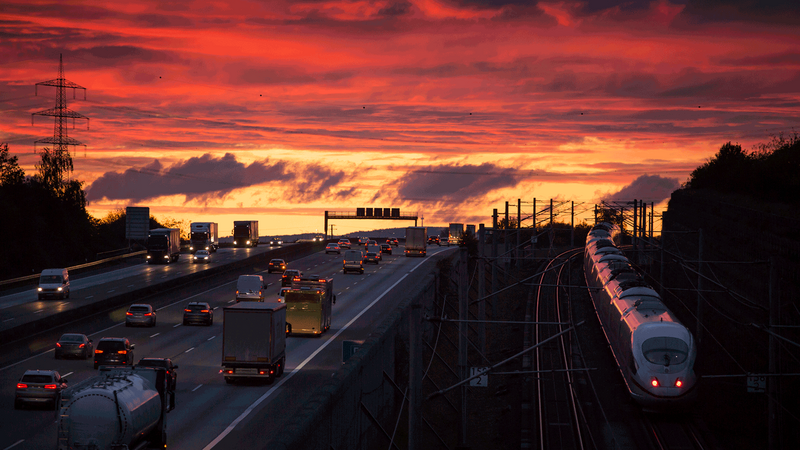Electric car carbon emissions more than twice those of train travel – Rail Delivery Group
2 min read
Rail travel is almost two-and-a-half times less carbon intensive per mile than using an electric car, new figures from the Rail Delivery Group (RDG) have shown.
The body, which represents the rail industry, has been collecting detailed data on trains across the entire sector including engine type, fuel type, journey distance, occupancy and carriage layout.
On average, across the top 100 business travel routes, taking the train for business travel produces nine times less carbon than going by diesel or petrol car, more than four times less carbon than using a plug-in hybrid electric car and almost two-and-a-half times less carbon than using a battery electric car.
Some of the business travel journeys with the lowest carbon emissions per passenger (compared to one person travelling alone by petrol or diesel car) include London King’s Cross to York (15.13 times less carbon), Darlington to London King’s Cross (14.88 times less carbon) and Ebbsfleet International to St Pancras International (14.41 times less carbon).
But the figure is almost 20 times greener for the route from Haymarket station in Edinburgh to London King’s Cross which produces 19.85 times fewer CO2 emissions.
Jacqueline Starr, chief executive of the RDG, said: “We all have a responsibility to reduce our carbon footprint, and the data that we have published reveals that rail is the green choice for travel between our towns and cities.
“We know that businesses need accurate and reliable carbon emission data they can trust. From today, businesses will be able to see the most accurate measure of rail business travel emissions available for the 100 most popular business journeys. This will allow travellers to make greener travel choices by providing reliable carbon data when they book their next train ticket.”
Clive Wratten, CEO of the Business Travel Association, said: “This initiative from RDG on behalf of the whole rail industry has the potential to provide clarity and a robust green message to all parts of business travel.”
Later this year, RDG plans to release carbon data for all point-to-point rail business routes across Britain.
Despite the positive environmental connotations of travelling by train, campaigners have pointed out that UK train fares can be complex and more expensive than cars. According to the Campaign for Better Transport (CBT), price is the main reason that people travel by train less, alongside increased working from home since the pandemic.
Norman Baker, the CBT’s director of external affairs, said the fares and ticketing arrangements on the UK’s railways were “not fit for purpose”.
“They have evolved haphazardly over decades, creating a Heath Robinson-type structure that is full of unnecessary complications, bizarre rules and wild inconsistencies,” he said. “It is hardly surprising therefore that many people are not confident that the ticket they buy is the best one for their journey.”



